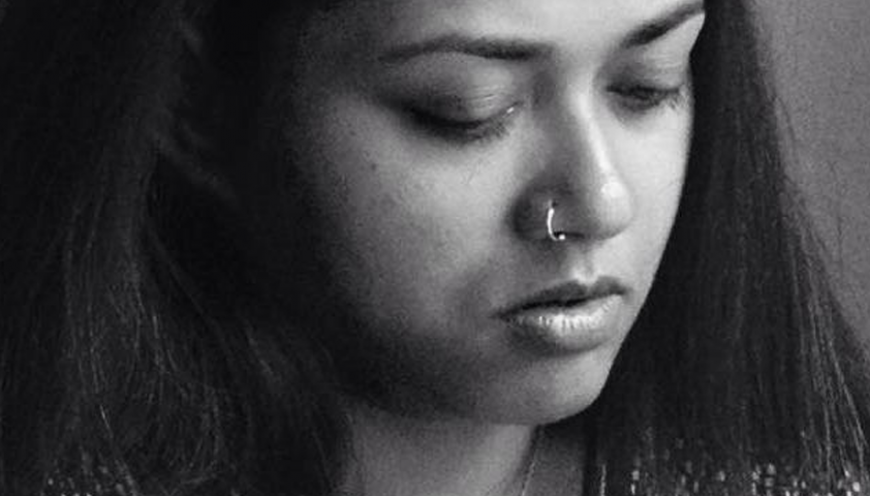She questions representation of gendered bodies in cinema, and evokes feminist thoughts in media and cinema that questions regressive social norms and values. Her first film Meher Jaan (2011) did some credible damage to the hegemonic formats of cinema viewing and making in her country and the region.
A feminist and a film- maker others like to call controversial in Bangladesh, Rubaiyat Hossain talks to Docskool about women as film- makers, her new project and a glance at cinema in her country. Her new project, “Made in Bangladesh” manifests the realities of current Bangladesh – ‘about a woman who works in a factory, and has to balance her work and home in a patriarchal society.’
Rubaiyat is hopeful about the progression of cinema in Bangladesh. ‘Of recent people get to watch independent cinema being screened every 1-2 months in the theatres with good quality’ she says. The contents are derived from variety of subjects; some are theatre-oriented; some are born from art houses, and so on. The increasing presence of Bangladesh cinema in film festivals is very exciting with more avenues of collaboration opening up. In 2017 she was at the Locarno Open Doors which has a focus on South Asia between 2016-2018. ‘Her presence helped her build a new understanding on the evolution of global cinema and co-production in these contexts’.

But she also feels that there are some key things that cannot be denied in the industry; ‘there is a lack of film schools, and most of the filmmakers are self-taught. The industry is gendered, where women filmmakers who are very less in numbers faces unequal wages and further marginalised.’ In her perception, when you are trying to tell a story of a woman, you need to understand them, and involve them in your own projects- a deliberate decision to engage and work with women crew in her recent film, Under Construction.
Her experiences of working around representation of women in cinema sheds light that even if a cinema has woman protagonist, it is embedded with stereotypes; some for the sake of establishing a commercial value while some for other reasons. Rubaiyat found the works of works of Satyajit Ray such as Ghori Baire,Mahanagar and Charulota to have respectfully portrayed women.

‘The ability to portray a woman as a main character in your films is an art on its own’, but she takes certain portrayals of women with a grain of salt because she does not find them as accurate as they should have been, at least from a feminist point of view.
Funding, she says is one of the key obstacle of working in the industry. The simple logic is “no box office, no money”. ‘If you even get a grant, the money lasts for only so much of time, and that’ very rare as well. Most of the filmmakers are forced to take a part time job to sustain themselves, and without a good cinema school, all end up being self-taught’.
She further added that Bangladesh until recently was a little disconnected from international cinema event, and there is a constant need to establish connections with other filmmakers. Her film “Made in Bangladesh” was possible after her experience at the Open Doors, with funds with various countries and the European Union Fund. She suggests creating a strengthening bond between South Asian Film makers to further understand the existing work, and establish possible collaboration.
All photo’s from Rubaiyat Hossein’s personal archive.

